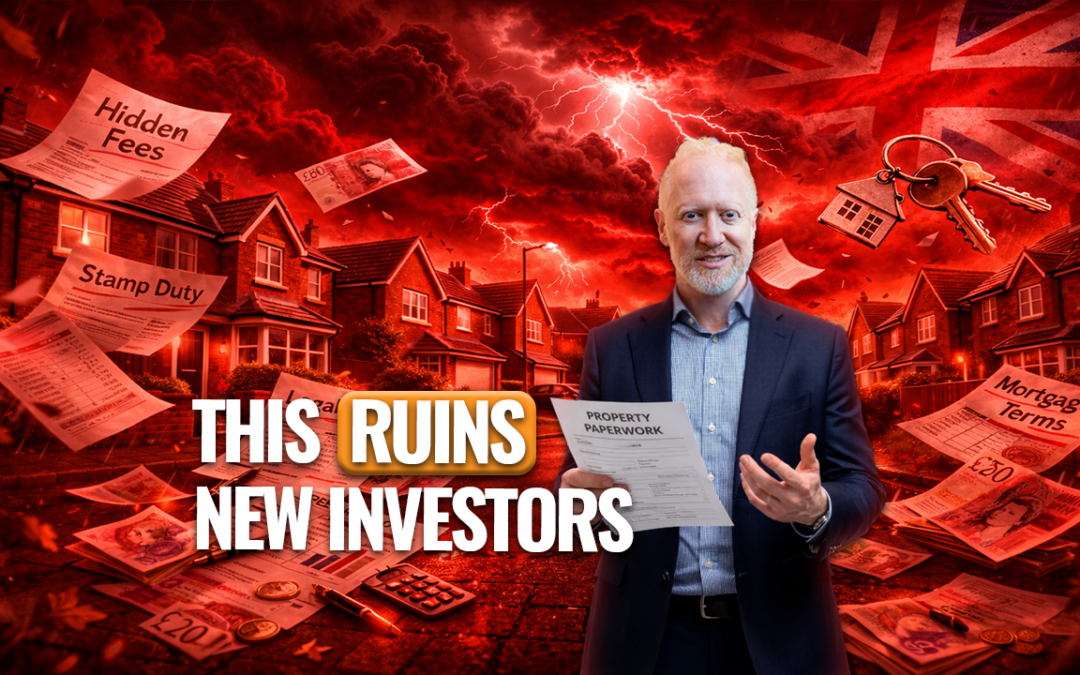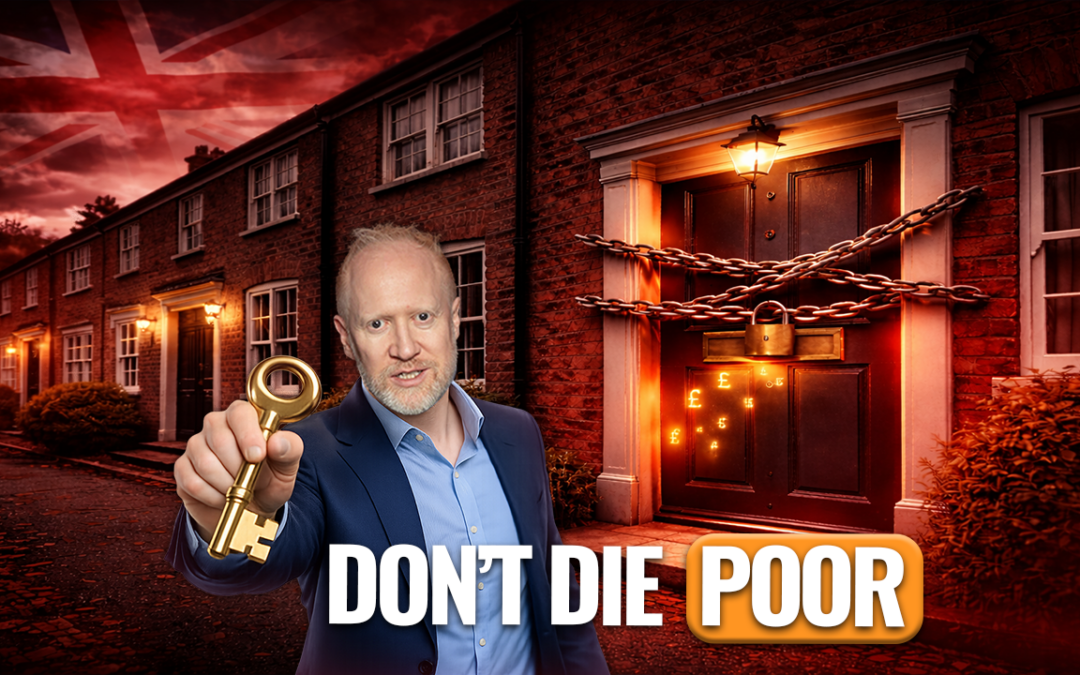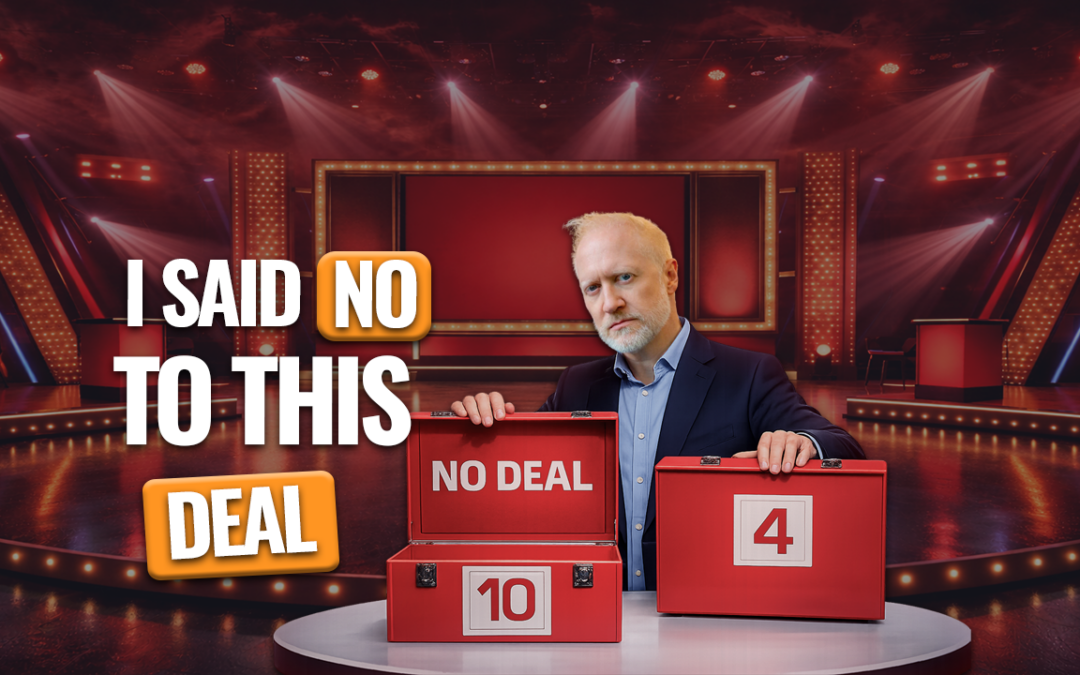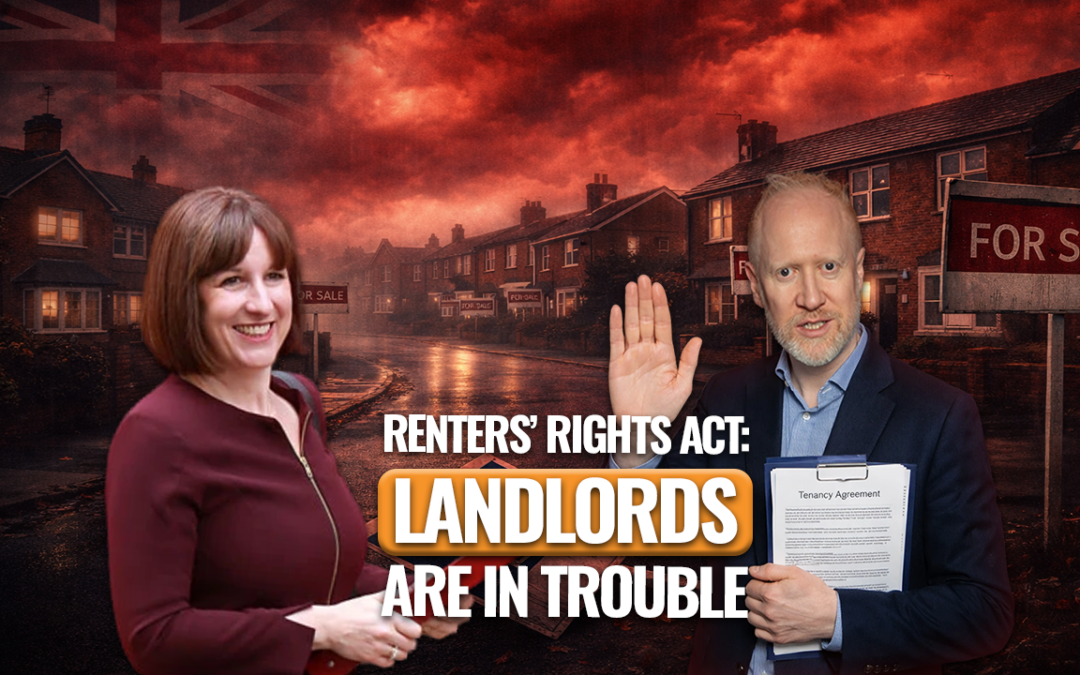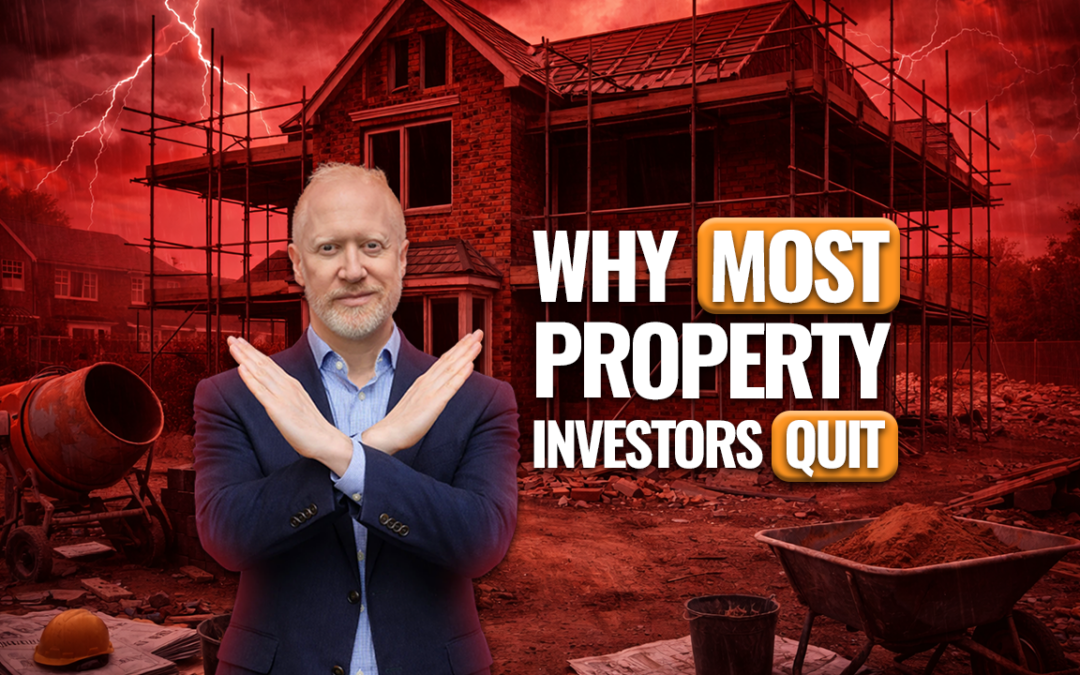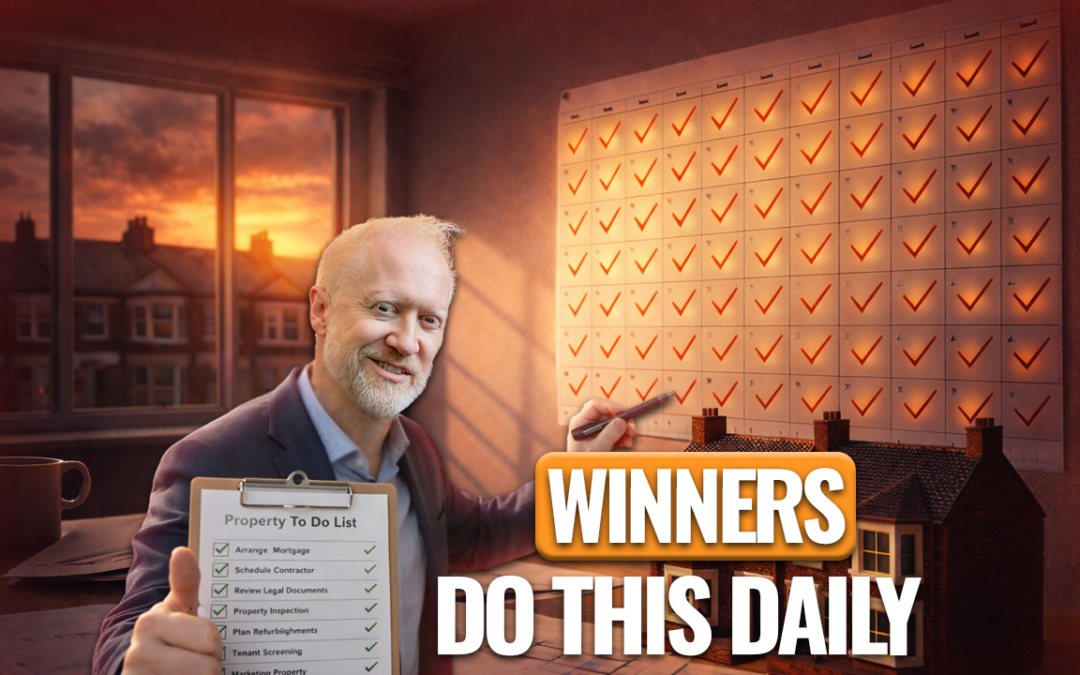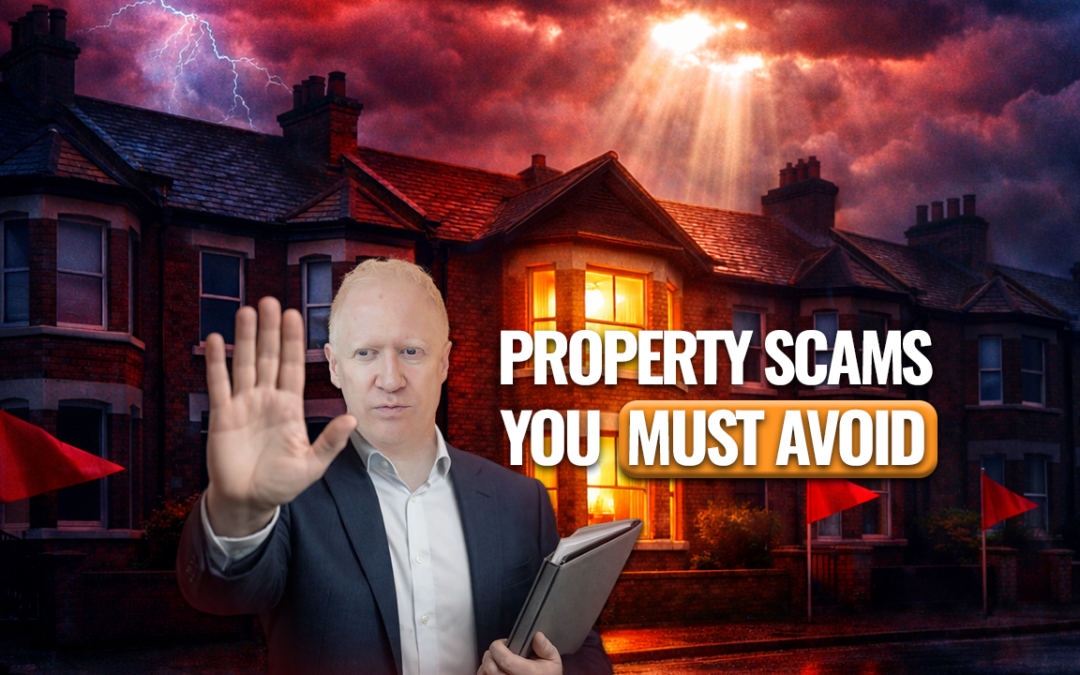In this blog post I’m going to share with you why you should not do joint ventures in property. That might sound a bit controversial and I’ve got a bit of a caveat to it, but that’s what this post is all about. Now let me be really honest here. I’ve done a lot of joint ventures. Some of them have been amazing; I’ve been able to achieve more working with other people than I would have done on my own. I’ve also had some joint ventures that haven’t worked very well. That’s my fault because maybe I’ve not picked the right people or we’ve not communicated properly.
So whilst joint ventures can be incredible, you need to make sure you do them in the right way. I hear too many horror stories. But what I really want to explain in this post is why you shouldn’t do joint ventures from a financial point of view. If you’re just investing in property and you run out of your own money, I completely understand the argument that I found a great deal here and I can’t do it because I run out of cash. If I find someone else with money, maybe they can put the money in, I’ve got the deal. I can do the work and we can have some sort of profit share, maybe share the cash flow. If you share the equity, that is a classic joint venture. To an extent they’re good. But I want you to really think about this.
Why People Do Joint Ventures
Many people start doing joint ventures, particularly when they start investing, because they don’t have the right money. They learn how to find great deals, which is the most important thing you need to learn, but they don’t have ways of funding. So they find other people to put the money and that’s great. I just want you to think about how much that is costing you.
Let me give you an example. Let’s say you buy a property for £160,000. What you’re going to do is you’re going to turn it into a normal house. You bought it at a discount from a motivated seller, it’s a three bed house and you’re going to turn it into a five bed HMO. Let’s say you’re going to spend £50,000 doing that. So £160,000 is the purchase price at a discount and £50,000 to do the work has cost you £210,000. Let’s say, because you’re increasing the size of the property, you increase the value to £300,000. That would be a pretty good deal. But the problem is you don’t have the money for the refurb. In fact, you don’t even have the money for the deposit, the stamp duty, the legal costs and you’re stuck, you can’t do the deal. So would it be good if someone else can bring in all of the money?
Let’s say £100,000, if someone needs to bring it, they bring all the money and you don’t have to pay it. Would that be a really good deal?
In a way it will be good but based on those numbers, if the cost to you was £210,000 and the value was £300,000, once all the work’s been done you could re-mortgage that property, what’s we call momentum investing. You buy something at a discount, you add value, and you quickly remortgage it to take all the money out. So if you did that, you pay off the first mortgage, you pay back the deposit to the joint venture partner and pay back their refurb money. You’d have a mortgage of say £210,000 you’d have £90,000 of equity. For as long as you own that property, that other person, that joint venture partner who helped you get the deal done, you’re going to be paying them handsomely for that. You might give them half the equity, the equity is £90,000 so that’s £40,000 straight away you’re giving them.
Let’s say it’s a good five bed HMO. You’re making a £1,000 profit a month; you might be given half of that profit, £3,500 a month to them and £500 to you. That’s £6,000 a year you’re giving them in rental income.
“Many people start doing joint ventures, particularly when they start investing, because they don’t have the right money. They learn how to find great deals, which is the most important thing you need to learn, but they don’t have ways of funding.”

The Expense of Doing a Joint Venture
Now think about that property, that property goes up in value over time from 300. Theoretically properties double in value every 10 years, it doesn’t happen every 10 years, that is an average but that’s the theory. Let’s say it goes up to £600,000. So from 300 up to 600 in 10 years, it’s perfectly possible. There’s £300,000 pounds of extra equity which, by the way, you’re going to share with a joint venture partner. So hang on a minute, when you did the deal, it was £210,000 buy for £160,000, spend 50 on 210 and the value was 300 so that is £90,000, actually £45,000 each. Then over 10 years it has gone up in value from 300 up to 600, that’s a £300,000 profit, half of which you’re giving to your joint venture partner. That’s another £150,000 you’ll give them on equity. So far they’ve got £190,000 of profit. They also get all their money back when you refinance the property plus each month, you’ll give them 500 pounds, 6,000 pounds a year for 10 years. That’s another 60,000 pounds. So you doing a joint venture with this other person will have cost you £200 over £250,000.
You could argue “Yes but I didn’t have the money, I wouldn’t have done the deal, I’ve had £500 a month and I’ve also had the equity growth” that’s all true. But instead you could have done a private loan. You could have found someone who had some money, you bought it from them, you got to know them and they got to like you and trust you. You have got to be careful when you’re using other people’s money but you put it into the deal, you pay them an interest rate which, by the way, you could pay from the rental income and then you refinance it to give them money back. Once they get the money back, the interest stops.
“Theoretically properties double in value every 10 years, it doesn’t happen every 10 years, that is an average but that’s the theory.”
Final Thoughts and Further Training
The reason I say don’t do joint ventures is because you are committing to work with that person for five, maybe 10 years, and you’re giving away a huge amount of profit. In some circumstances, yes, joint ventures can be great; you get some profit rather than no profit. But the message I’m trying to get across to you is rather than doing joint ventures, which people do because they can and because they’re easy, put a bit more effort in and find people who just lend you the money. You might think “Well, who’s going to lend me money?” There were so many people with money in the bank right now, it’s doing nothing for them and actually by borrowing their money, not only are you being helped but you are helping them get a much better return on their investment. You might not like the idea of going to ask for money. No one likes the idea of going cap in hand asking for money but there are ways you can do it so that people actually want to give money to you and you’ll never have to ask anyone for money, they actually come to you wanting to invest with you.
Now that’s a bit more advanced and I’ve actually got some free online training all about that. If this has been of interest to you and you realise “Actually I like JVs or I’m doing JVs and I didn’t realise how much it was costing me”, maybe you should think about doing private loans. If you want to step up to the next level of success in your property journey, you need to move away from doing joint ventures and into doing private loans where you own the entire asset and you’re just giving someone an interest rate for the money they’re paying to you.
I do hope this has been useful. We put new content out every single week. I don’t want you to miss any of these valuable articles. Look in the description below right now, come and click on that, register to come and join me for this online training all about how you can raise private finance instead of doing joint ventures where you’re giving away half of your profit, yet you’re costing yourself an absolute fortune by doing that. So as ever I’d like to encourage you to invest with knowledge, invest with skill.

